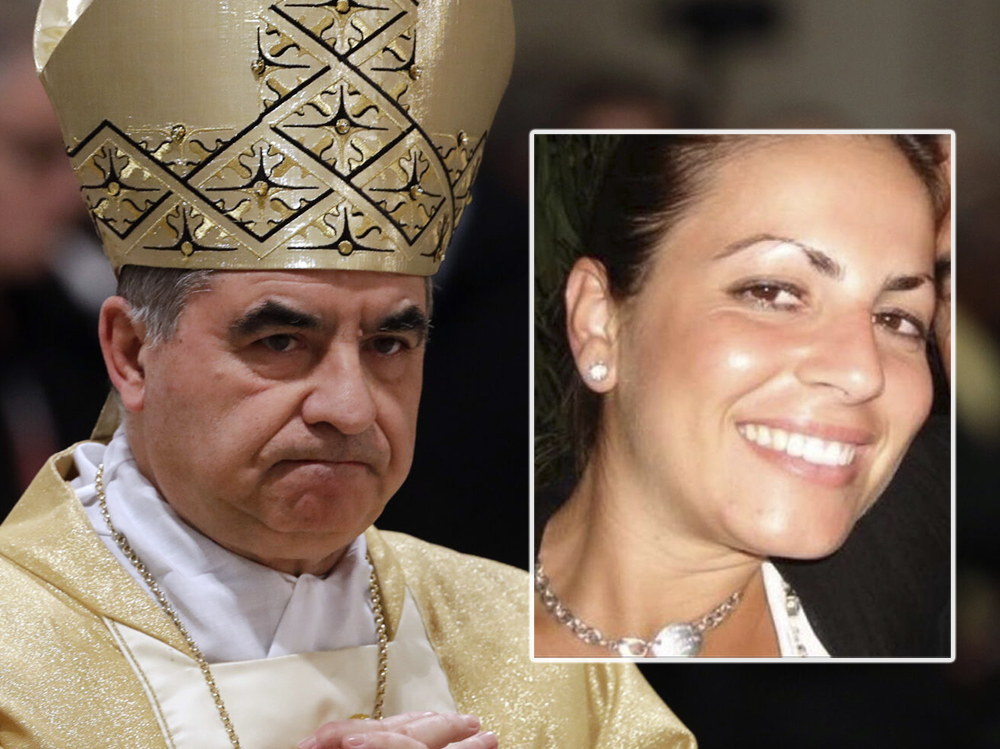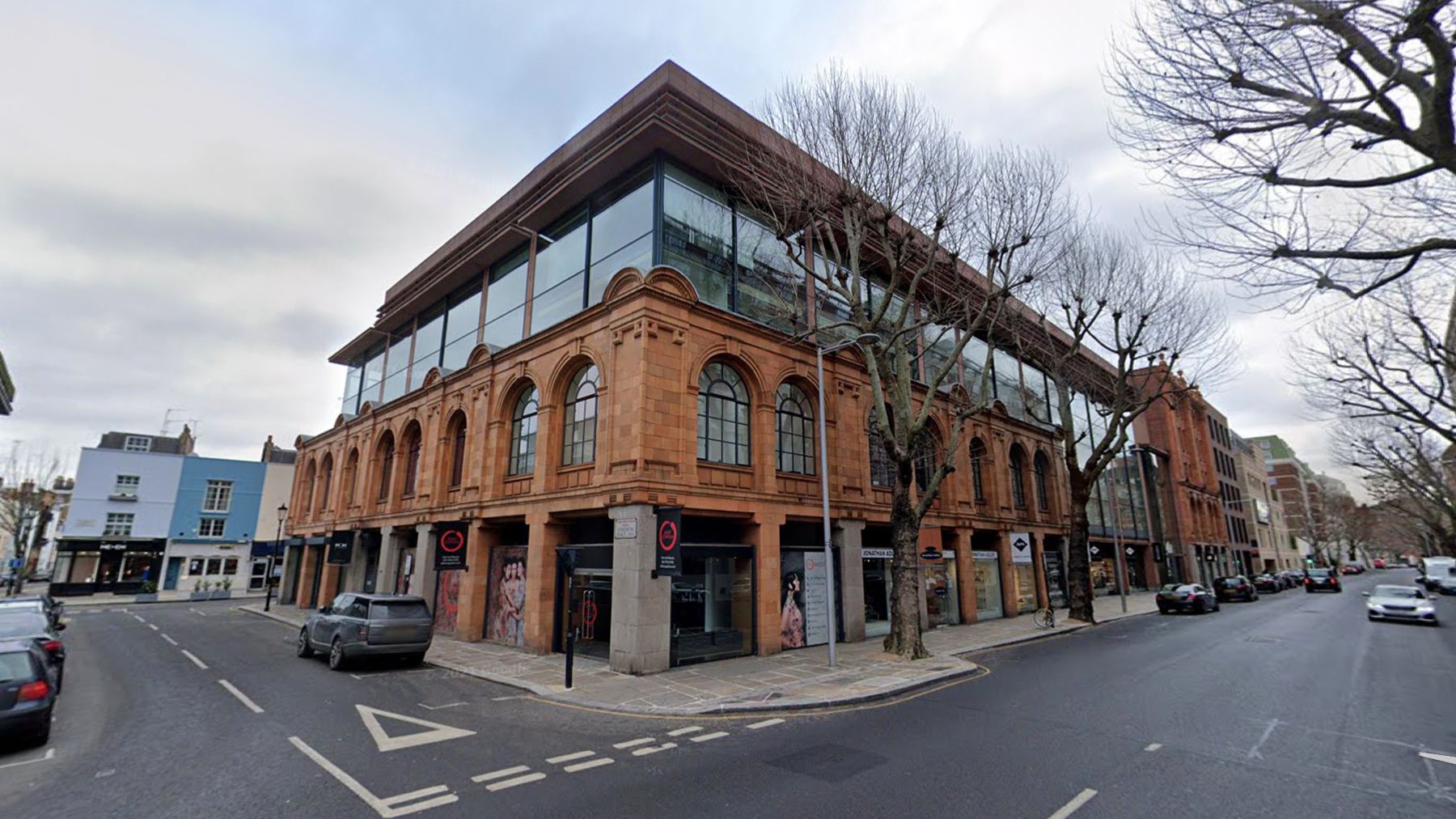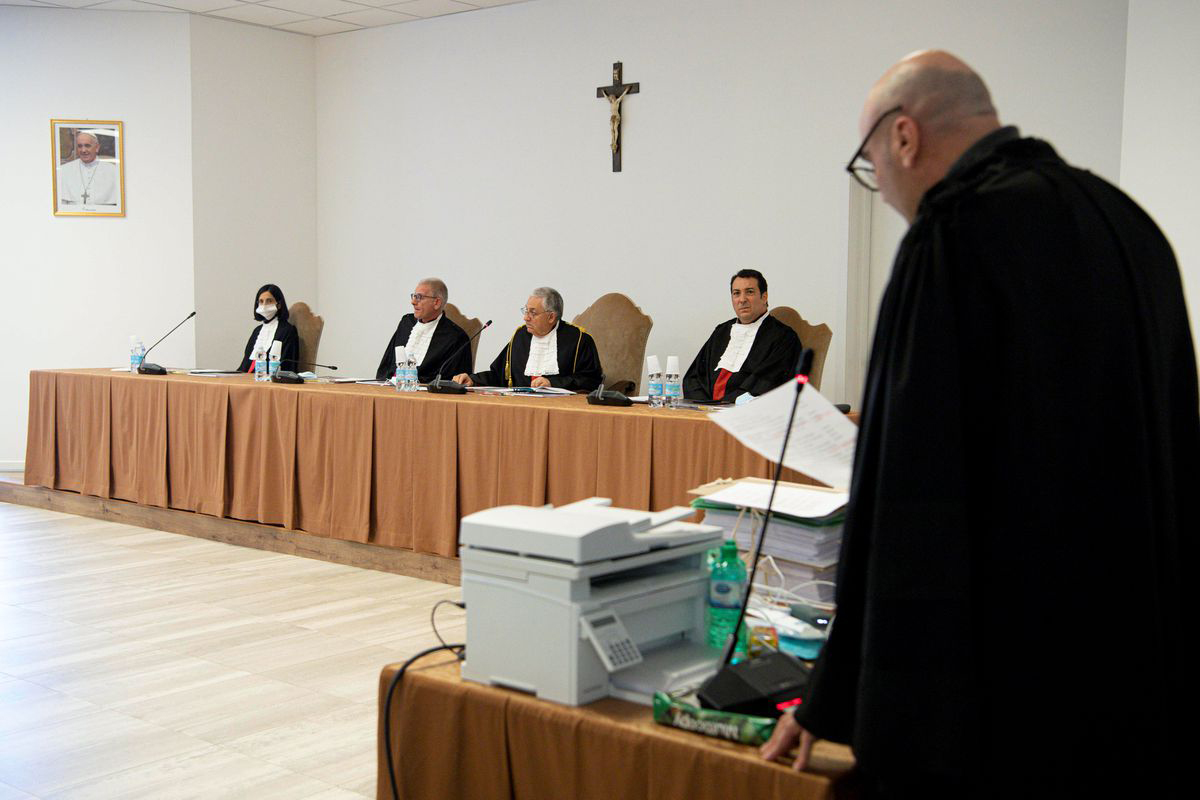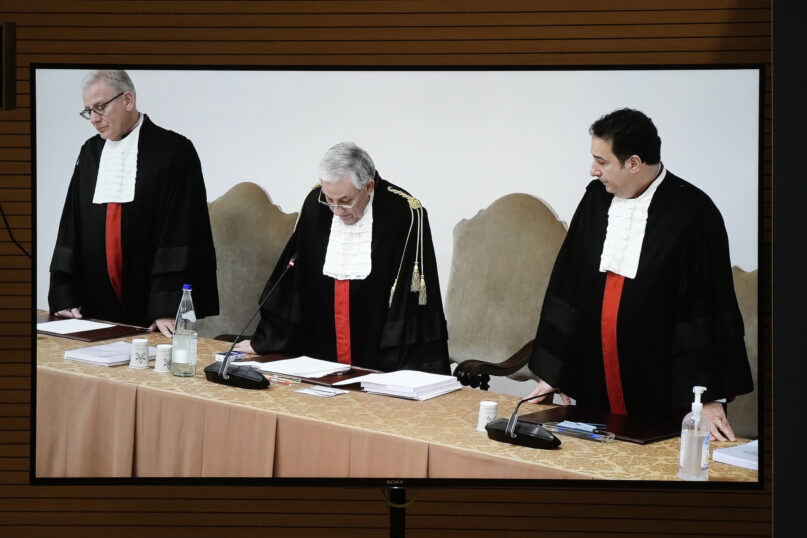(RNS) — Whenever I hear of a financial scandal in the Vatican, my first question is, were they corrupt or stupid? A three-judge panel determined that Cardinal Giovanni Angelo Becciu and eight other defendants were guilty of crimes that involved a large real estate investment in London, payments to a self-styled security consultant and payments to Becciu’s brother.
On Saturday (Dec. 16), Becciu was sentenced to five-and-a-half years in prison. He will remain free while the case is appealed.
The whole fiasco is extremely complicated and what I present here is a CliffsNotes version of the affair.
Becciu’s dealings with his brother and the security consultant are the simplest parts of the case and, in my opinion, should have been tried separately from the real estate deal.
The self-styled security consultant, Cecilia Marogna, was supposed to help in the release of a nun kidnapped in Mali. Marogna had no security experience or credentials, but Becciu gave her hundreds of thousands of euros in Vatican funds, some of which she spent on luxury items. She claimed to have connections to the Italian security services, but they denied her assertions.
That anyone with an ounce of sense would hire her for this job is simply not credible. She and Becciu were found guilty by the judges.

Cardinal Angelo Becciu, left, and Cecilia Marogna. (AP Photo/Gregorio Borgia, left. Image via social media, right)
Nor do the hundreds of thousands of euros paid to Becciu’s brother and his “charity” in Sardinia pass the smell test. After the charity’s records were subpoenaed, the Italian authorities found hastily forged receipts for donations of food the charity claimed to have made.
The real estate deal was more complex, with many actors involved.
Real estate is an attractive investment for those with lots of money. The returns can be huge when successful, although there are risks. For example, in the United States the value of office buildings has plummeted since the pandemic opened the possibility of working from home. No one saw that coming.
Cautious investors would put their money in indexed securities, but for the Vatican, the stock market is a moral minefield of companies that make weapons, contribute to global warming, pollute the environment, treat their employees badly and produce medical products the church finds objectionable. Most indexed funds would contain such companies.
Nor are government bonds free of moral ambiguity. Would buying U.S. Treasurys be seen as financing American foreign interventions? Real estate, on the other hand, is seen as a morally neutral investment.
For 200 million euros, the Vatican became a 45% owner of a former Harrods warehouse in the Chelsea district of London, which was supposed to be turned into luxury apartments. For various reasons, the investment went bad, and the Vatican wanted out. The problem was that it had to buy out the other investor, Raffaele Mincione, an Anglo-Italian businessman, before selling the building, and for that it needed more money.
The London investment was made by the Vatican Secretariat of State, not by the Vatican bank or APSA, the Vatican’s finance department. The secretariat had no real expertise in real estate investing. Subsequently, as part of his reforms, Francis banned the secretariat from making any investments.

The London property at the heart of the Vatican financial scandal. (Image via Google Maps)
To buy out its partner, the Vatican Secretariat of State wanted to borrow 150 million euros from the Vatican bank, but the bank’s officers smelled a rat, refused to play along and reported the proposal to the Vatican prosecutors.
The bank objected to the involvement of Mincione and Gianluigi Torzi, whose names appeared in a database of individuals involved in financial malfeasance.
The Vatican secretary of state is not only in charge of foreign affairs, he is also the equivalent of the prime minister. The secretariat of state is used to getting its way and did not even want to acknowledge the right of Vatican financial officers to look at its books. Subsequently, Francis made clear that the finance officers could look at everybody’s books.
In any case, being told no by the bank and being reported to Vatican prosecutors infuriated Becciu. There ensued a catfight with accusations of wiretapping, blackmail, fraudulent accounting, witness tampering and abuse of power. As the investigation progressed, there was finger-pointing as everyone denied responsibility for the mess.
Eventually, the secretariat found another bank to lend the needed money to buy out their partner, but things only got worse when Torzi got involved.
The Vatican brought him in as a middleman to help in the negotiations, but he constructed the deal so that although the Vatican would own the property, he would control it. He then forced the Vatican to pay him $17 million to get control so they could sell the property. He was found guilty of defrauding the Vatican, although competent lawyers should have spotted the language and objected to it before the deal was signed.
Ultimately, the Vatican paid about 350 million euros for the building and took a 100-million euro loss when it was finally sold. Becciu, Mincione, Torzi and Nicola Squillace, a lawyer who advised the secretariat on the London deal, were all found guilty. Others, including Vatican officials, were also convicted.
Now that the dust has settled, what should we think about the scandals and the Vatican response?
First, the good news is these crimes became public and were not covered up by the Vatican as was the practice in the past. There are still some unanswered questions because in a case like this it is hard to know whom to believe. Hopefully, the judges’ written decision, which will take months to write, will answer some of these questions. At a minimum, we should learn what evidence and testimony they found credible.

A Vatican trial of 10 people accused of financial crimes, including Cardinal Angelo Becciu, has gone on for two years. (File photo from Nov. 17, 2021, by Vatican Media)
Second, there was a public trial conducted by experienced lawyers and judges who were brought in from outside the Vatican. To an American, the process appeared excessively long and complex, with 85 hearings lasting more than two years. But the Italian judicial system, which the Vatican mostly follows, is a different animal.
Observers have questioned the strategy and tactics of the prosecutor, Alessandro Diddi, but there is no indication of prosecutorial misconduct that would have altered the outcome. His case depended partly on whether you believed Becciu or Monsignor Alberto Perlasca, the Vatican official who was given immunity in exchange for testifying against Becciu. Getting a subordinate to flip on his boss is a common prosecutorial tactic.
The evidence, testimony and rebuttals were given in open court for everyone to hear. I was not there, but I see no reason not to accept the decision of the judges. Becciu’s conviction shows that no one, even a cardinal, is above the law in the Vatican.
On the other hand, in 2021, a U.K. court refused a request from the Vatican to freeze the funds of Torzi, because the Vatican’s “non-disclosures and misrepresentations are so appalling.” This had no effect on the actual trial, but that the British judge gave the Vatican such a tongue-lashing for its petition is worrisome. At almost the same time, however, Italian prosecutors saw things differently and asked a judge for an arrest warrant for Torzi, accusing the financier of money laundering and tax evasion
Third, if the Vatican wants to play in the big leagues of real estate investing, it needs competent legal advice from a big firm that specializes in real estate. You don’t get expert advice on the cheap. You don’t deal with people listed in a database of individuals involved in financial malfeasance. That the Vatican was doing business with the likes of Mincione, Torzi and Squillace is a scandal of epic proportions.
At a minimum, the Vatican needs in-house counsel who doesn’t trust anyone and who knows when to bring in outside experts to review investments and contracts. Clerics are both incompetent and too trusting. They can also be crooks. At a minimum, every office in the Vatican should be subject to an annual audit by an outside firm and the results should be made public.
Finally, there is the question of the role of the pope and the secretary of state, Cardinal Pietro Parolin, in the scandal. Neither testified in court, although written evidence was presented. I do not think either can be blamed for the actual investment decisions. They are both busy men who would expect their subordinates to deal with the details of such investments.
The pope has also been accused of interfering in the judicial process and changing the law to favor the prosecution. Canon lawyer Ed Condon of the conservative Catholic site pillarcatholic.com, which has extensively followed the scandal, has examined these accusations and found them wanting. He notes the judges rejected all procedural challenges submitted by the defendants to the court.
“Pope Francis’ ‘interference’ in the case,” according to Condon, “amount to authorizing an investigation into a senior government department to be kept secret from those being investigated, granting a warrant for wiretaps, and waving state secrecy to allow the investigation to continue.”
“It is hard to see,” he concludes, “how any of these actions denied due process to the eventual defendants, or constitute changing Vatican law to strengthen a weak prosecution case — as has been repeatedly claimed.”
On the other hand, the pope and Parolin are partly to blame for Becciu, who although appointed by their predecessors, was kept by them and made a cardinal. He should never have advanced so high in the Vatican or been made a cardinal.






